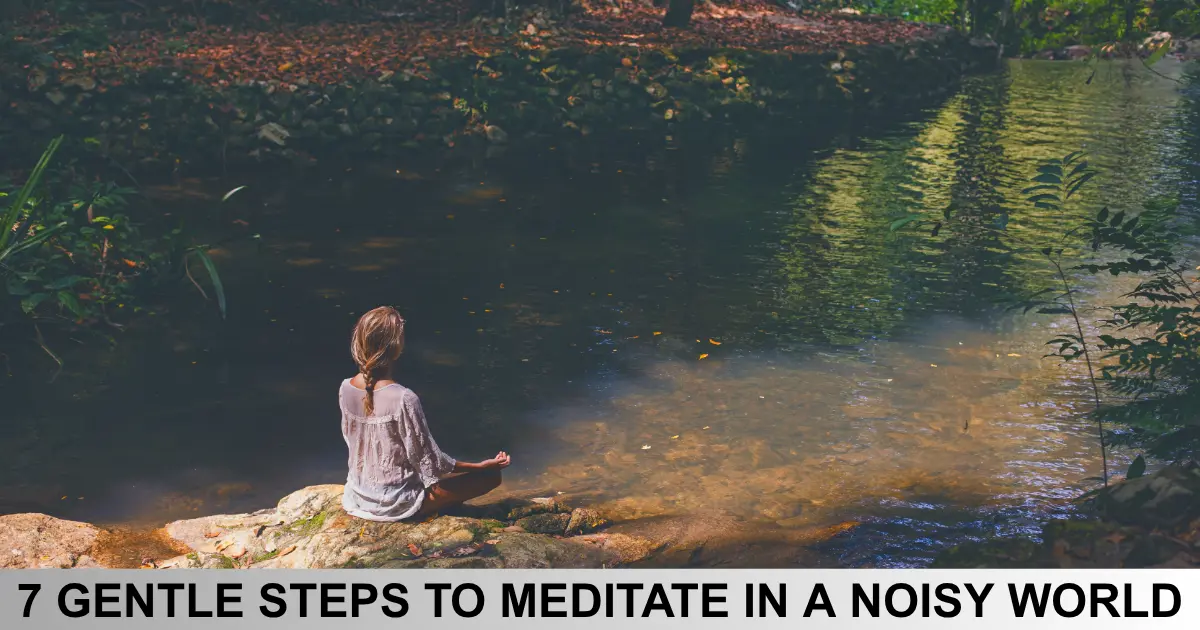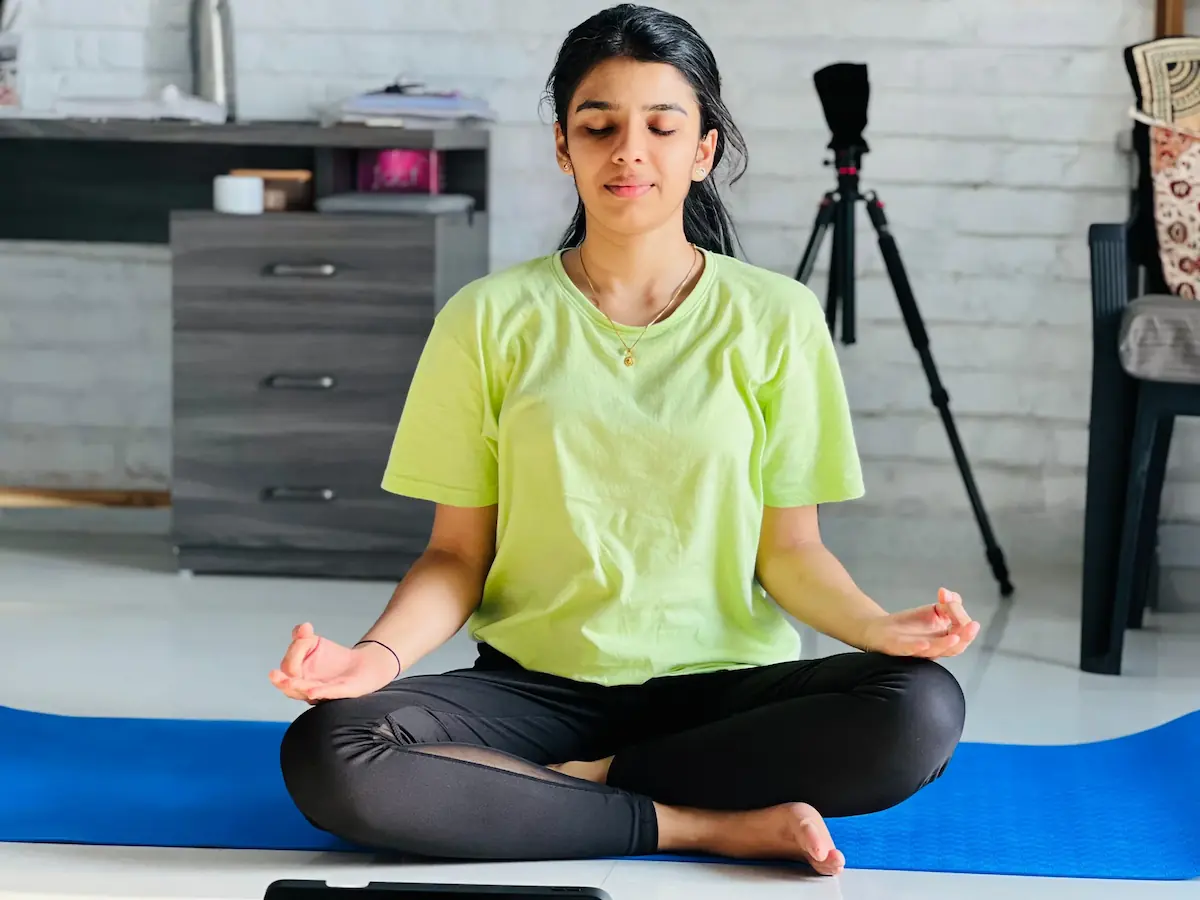Modern life is full of distractions buzzing phones, city sounds, and endless mental chatter. Meditation offers a gentle pause, helping you find calm even when the world is anything but quiet. Here’s a step-by-step guide to help you meditate, no matter what’s happening around you.
Step-by-Step Guide
Choose Your Calm Corner
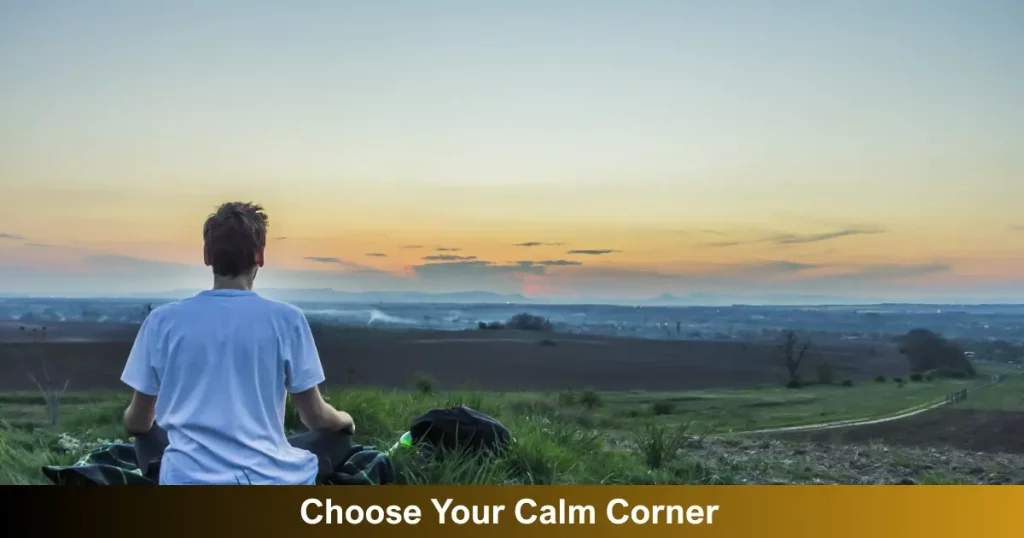
- Find a spot with less noise: your bed, a cozy chair, a balcony, or even a quiet office corner.
- You don’t need total silence just a place with fewer distractions.
Sit Comfortably
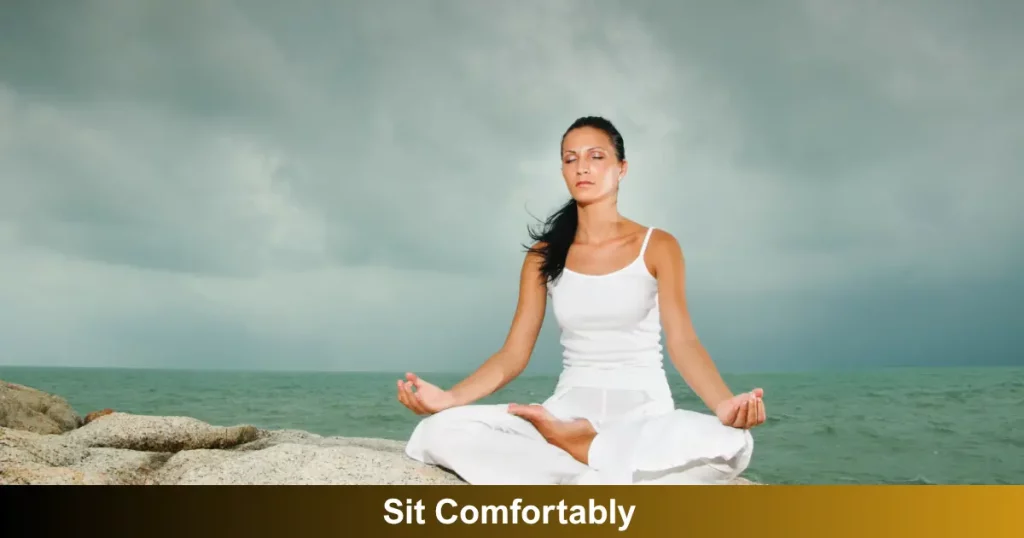
- Sit in any position that feels steady and relaxed.
- Use a chair, cushion, or the floor. Keep your back straight but not stiff.
- Comfort matters more than “perfect” posture.
Close Your Eyes and Notice Your Breath
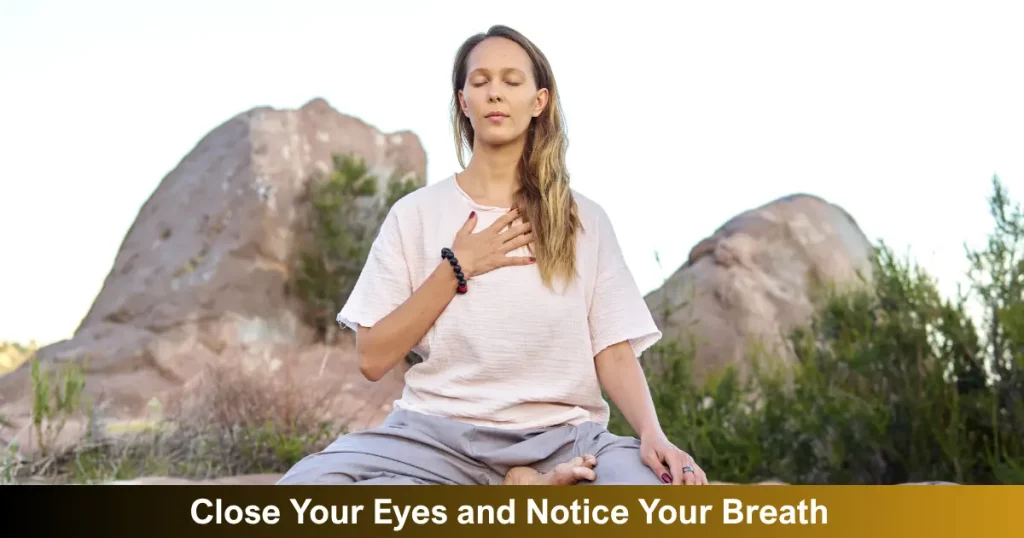
- Gently close your eyes.
- Breathe naturally no need to change your rhythm.
- Pay attention to your breath as it moves in and out.
Accept Wandering Thoughts

- Thoughts will pop up grocery lists, memories, worries.
- Don’t judge or fight them. Notice each thought, then gently return your focus to your breath.
Stay for a Few Quiet Minutes
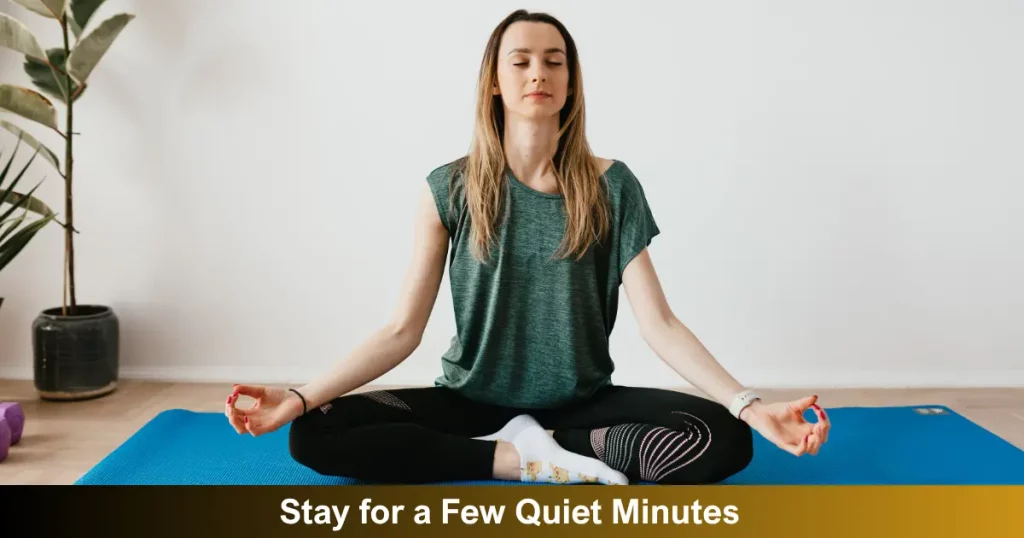
- Start with just 5 minutes. Set a soft timer if it helps.
- Remember: showing up matters more than duration.
Allow Any Feelings
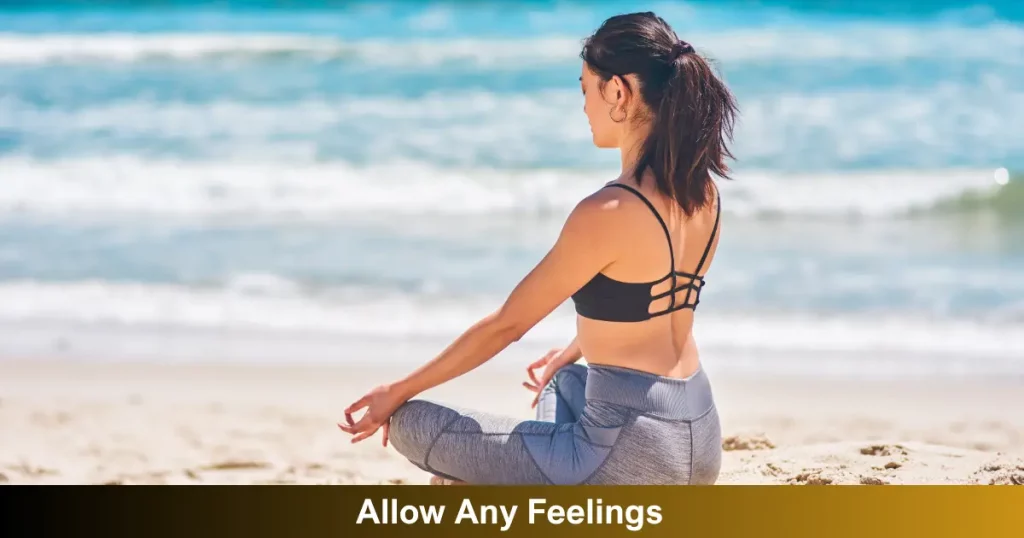
- You might feel peaceful, restless, or even emotional.
- Let whatever comes up be there. Meditation is about noticing, not controlling.
Return Gently to Your Day

- When you’re ready, open your eyes slowly.
- Take a deep breath, stretch, and move back into your day with a little more lightness.
Why Does This Work?
Meditation isn’t about escaping noise it’s about being present, even in chaos. With regular practice, you’ll notice better focus, less stress, and a greater sense of balance.
- Why Your Mind Wanders During Meditation
- Beginner Yoga Poses for Stress Relief
- Yoga vs Gym: Which is Better for Mental Health?
Frequently Asked Questions (FAQs)
Q: Can I meditate if my environment is noisy?
A: Yes! Meditation is about noticing what’s happening, not blocking it out. Use sounds as part of your practice acknowledge them, then return to your breath.
Q: How long should I meditate as a beginner?
A: Even 3–5 minutes is enough to start. Consistency is more important than duration.
Q: What if I can’t stop my thoughts?
A: You don’t have to. Let thoughts come and go like clouds. Gently bring your attention back to your breath each time you notice your mind wandering.
Q: Do I need special equipment or apps?
A: No. All you need is yourself and a willingness to pause. Apps and music can help, but aren’t required.
Q: What if I feel restless or emotional?
A: That’s normal. Meditation helps you notice and accept whatever arises, without judgment.
Q: When is the best time to meditate?
A: Anytime that fits your schedule morning, midday, or before bed. The best time is the one you’ll stick with.
Q: Will meditation make me calm right away?
A: Sometimes you’ll feel calm, sometimes not. The benefits build over time with regular practice.
Meditation is a gentle invitation to slow down no perfection required. Just begin, and let each session be exactly what it is.
